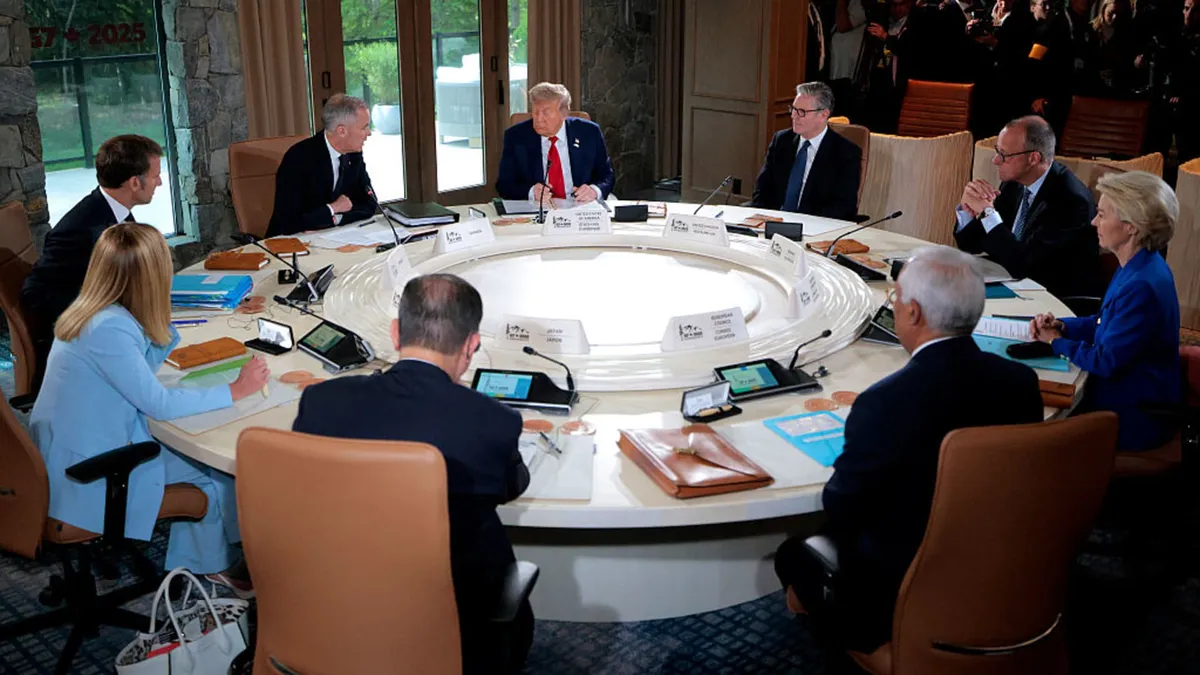
On Tuesday, U.S. President Donald Trump announced that his early exit from the Group of Seven (G7) summit was due to "much bigger things" than the ongoing conflict between Israel and Iran. This came after he urged Iranian civilians to evacuate Tehran immediately, highlighting the escalating hostilities in the region. The summit leaders, representing some of the world's largest economies, issued a joint statement affirming their support for Israel while calling for a resolution to the intensifying Middle East conflict.
The G7 leaders reiterated Israel's right to defend itself, emphasizing their commitment to Israel's security in response to recent missile exchanges between Israel and Iran. The statement condemned Iran as the principal source of regional instability and terrorism, and reaffirmed that Iran should never possess a nuclear weapon. This declaration comes as Israel conducted airstrikes against Iran, targeting sites believed to be linked to Tehran's nuclear ambitions.
Trump's statements were partly a reaction to French President Emmanuel Macron, who mentioned that Trump had proposed a ceasefire between Israel and Iran. In a post on Truth Social, Trump clarified that his departure from the summit had "nothing to do with a Cease Fire," emphasizing that it was related to larger matters at hand. White House press secretary Karoline Leavitt had previously indicated that Trump was leaving due to the critical situation in the Middle East.
The G7 summit's joint statement also called for broader de-escalation efforts in the Middle East, including a ceasefire in Gaza. This comes amidst alarming reports, including Israel claiming to have eliminated Ali Shadmani, identified as Iran's top military commander. The ongoing violence underscores the urgent need for diplomatic solutions.
This year's G7 summit included discussions on pressing global economic and geopolitical issues. Notably, Trump and British Prime Minister Keir Starmer finalized a trade agreement, marking Britain as the first country to secure a deal with the U.S. However, Japan's Prime Minister Shigeru Ishiba indicated that while discussions are ongoing, a deal was not yet reached.
The issue of support for Ukraine and the potential rehabilitation of Russia was also a significant topic at the summit. Trump indicated that he was not in a hurry to impose stricter sanctions on Russia, despite pressure from allied leaders. He remarked that the G7, previously known as G8, made a "big mistake" in expelling Russia in 2014, suggesting that this may have influenced Russia's actions in Ukraine.
In contrast to the G7 leaders' stance, China has openly condemned Israel's actions against Iran, positioning itself as a potential peacemaker in the Middle East. Chinese Foreign Minister Wang Yi expressed China's readiness to play a constructive role in de-escalating tensions, signaling a complex geopolitical landscape as the G7 seeks to navigate international relations amidst these conflicts.
The G7 summit continues to serve as a platform for addressing global challenges, with leaders striving to find consensus on critical issues affecting economies and security worldwide.